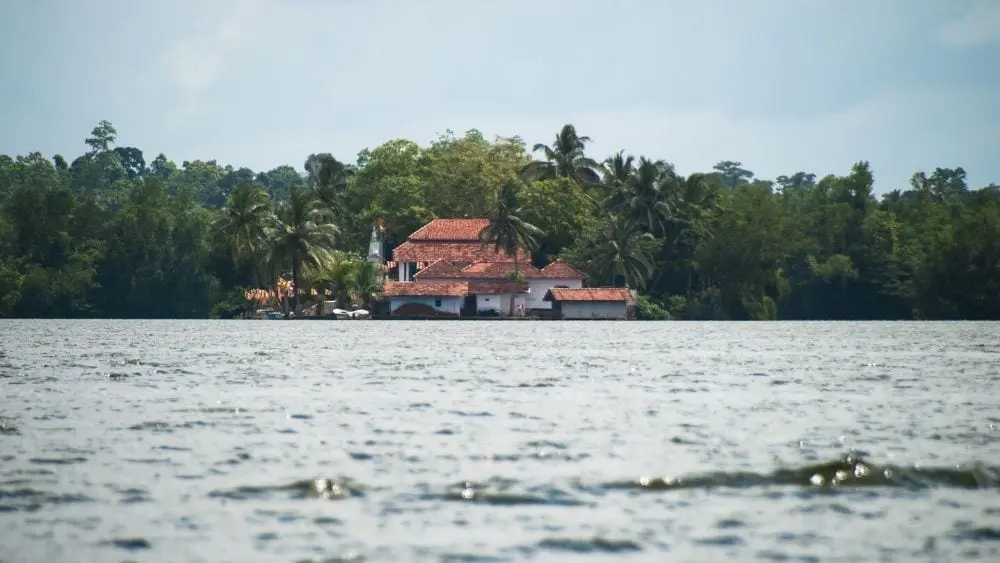
Nearly everyone has tossed out the phrase, “I’ll just go live on an island someplace,” when life gets too stressful. But some people have actually done it: Traded a traditional life in a city or suburb to live on an island without cars.
“My husband and I were on a road trip with our kids and we were talking about how burnt out I was after 12 years of commuting an hour each way to my teaching job,” says Jana Cason, a resident of Haig Point on Daufuskie Island, South Carolina. They began searching for a place to live that didn’t require cars for transportation, and that led them to the South Carolina oasis.
“The minute we stepped off the boat onto the dock, we knew it was meant to be,” says Cason. “Something drew us all in right away and we’ve come to appreciate the beauty, the pace of life, and the feeling of safety on the island.”
Cason transitioned to teach remotely for her employer, Spalding University, and flies back twice a year for meetings, while her husband started a handyman business when they arrived three years ago.
“About 100 families live nine months to all year in Haig Point out of the 270 homes in this community,” says Adam Martin, director of sales and marketing for Haig Point. “We’ve seen a big increase in full-time residents recently.”
Haig Point is a gated community about one mile across the water from Hilton Head Island. It has 1,100 acres with a golf course, equestrian facilities, a beach club with a swimming pool, a waterfront dining venue, a community center and parks. One thing it doesn’t have: Cars. Residents opt to walk, bike, ride horses, or look for other forms of transportation.
For basic resources, Haig Point offers valet and concierge services that include ferry rides and grocery deliveries.
“The ability to work remotely and have a safe, secure lifestyle for your kids, without worrying about cars or crime, has attracted a lot of telecommuters and business owners,” says Martin. He also reports that some kids go to school on Hilton Head, with ferry service working just like a school bus to transportation on Hilton Head to public or private school. Others are homeschooled or attend the Daufuskie Island Elementary School.
“Our daughters first went to private school on Hilton Head and then transitioned to online school for two years,” says Cason. “Now Katelyn goes to Hilton Head High so she can be in the band and Emily is educated online through Connections Academy.”
New homes on the island range from $600,000 to more than $2 million, says Martin, while existing homes and townhomes begin in the $200,000 range. The broad price range reflects the mix of home sizes and locations. Homeowner association fees range from $1,000 to $2,000 per month depending on the level of services chosen, but all levels include transportation, deliveries and concierge services.
Part-Time Paradise
Don’t want to vacation year-round? While some choose to live on an island full-time, others opt for spending three to six months of the year at their island home.
“We’ve rented beach properties on the Outer Banks of North Carolina and other places for years, but the time we rented a cottage on Daufuskie Island stayed in our minds the most,” says Stephanie Trunzo, an executive with Oracle who sold her tech business PointSource in 2017. “That was a true retreat: Horseback riding, walking on the beach, playing cards on the porch with our daughter. We finally decided to build a house within Haig Point for ourselves and our extended family to enjoy.”
Trunzo, her husband Ryan Malynn, and their daughter Adelaide Trunzo-Malynn live near Raleigh, N.C. Adelaide has three to five weeks of vacation every seven weeks from her year-round school, and strong internet and convenient ferries to the mainland make Daufuskie perfect for the family.
But it seems that fulltime living is inevitable for nearly everyone. “It’s on our radar for the future to possibly sell our other house and live here full-time,” says Trunzo. “There’s a charm to the island as if we have gone back in time. We have friends on the island and we like the fact that we know everyone’s kids and dogs. There’s a lot of trust here.”
Island Life in a Colder Climate
If you’re searching for cooler temperatures, take a look at Mackinac Island on Lake Huron in Michigan. This 3.8-square-mile island is popular with thousands of summer visitors but home to just 500 year-round residents.
“Year-round living on Mackinac Island appeals to a minority of people, but that makes it nice,” says Syndee Borst, a real estate agent with Mackinac Island Realty and a full-time resident for 22 years.
The island has a school, a medical center and, Borst says, the oldest family-owned grocery store in Michigan. “It’s a functional island all year, but pretty much everything other than the school, the medical center, the grocery store, a bar, and a lodge close down October first until the spring,” she says. “The ferry that connects us to the mainland runs until the ice forms on the lake, which usually happens around the beginning of January. At that point, an ice bridge forms and residents put their Christmas trees out to line the bridge for five miles. Then we can use snowmobiles to cross the lake.”
An airport also operates year-round with inexpensive flights to the mainland.
“We have a good internet system on the island, but we don’t have a lot of people working remotely here,” says Borst. “Most of the year-round residents work on the island and run businesses here.”
Sound like paradise? It’ll cost you: Homes on Mackinac Island range from $450,000 up to $5.5 million, with only about two new homes built each year. New homes cost $350 to $450 per square foot to build, Borst estimates, plus the rarely available lots cost $50,000 to $75,000 or more.
Logistics to consider for island life
In addition to Mackinac and Daufuskie islands, other car-free communities include well-known places like Catalina Island in California, Fire Island in New York, and under-the-radar places like Monhegan Island in Maine and Useppa Island in Florida.
“Chucking it all” for an island life sounds like fun, but no matter which island you choose, it’s important to research transportation, access to health care, and the availability of basic amenities. Find out about natural disasters and how the community handles those issues.
If you have children, you’ll have to research their education options. Online schooling is a popular option but often loses the traditional classroom feel that some parents want their kids to experience for social development.
Finally, ensure you’re making a financially sound decision: If the appeal of island life is going to come at the cost of burying yourself in incredible debt, think twice before relocating or purchasing a vacation property. But if you’re ready to find your new island home, check out NewHomeSource for current listings, and don’t forget to follow us on social media!

Michele Lerner is an award-winning freelance writer, editor and author who has been writing about real estate, personal finance and business topics for more than two decades.
 12 Ways To Decorate For All The Holiday Magic With Minimal Fuss
12 Ways To Decorate For All The Holiday Magic With Minimal Fuss